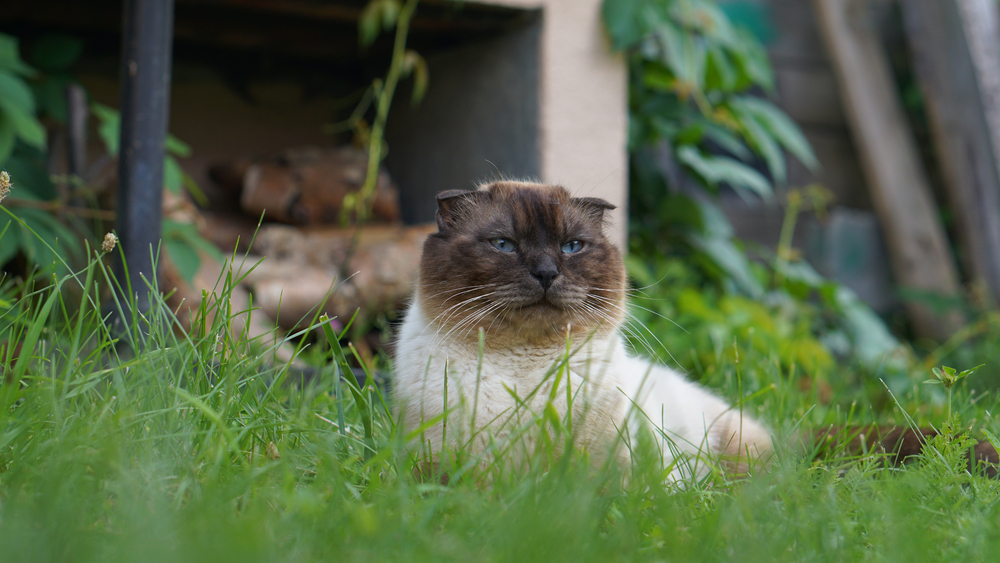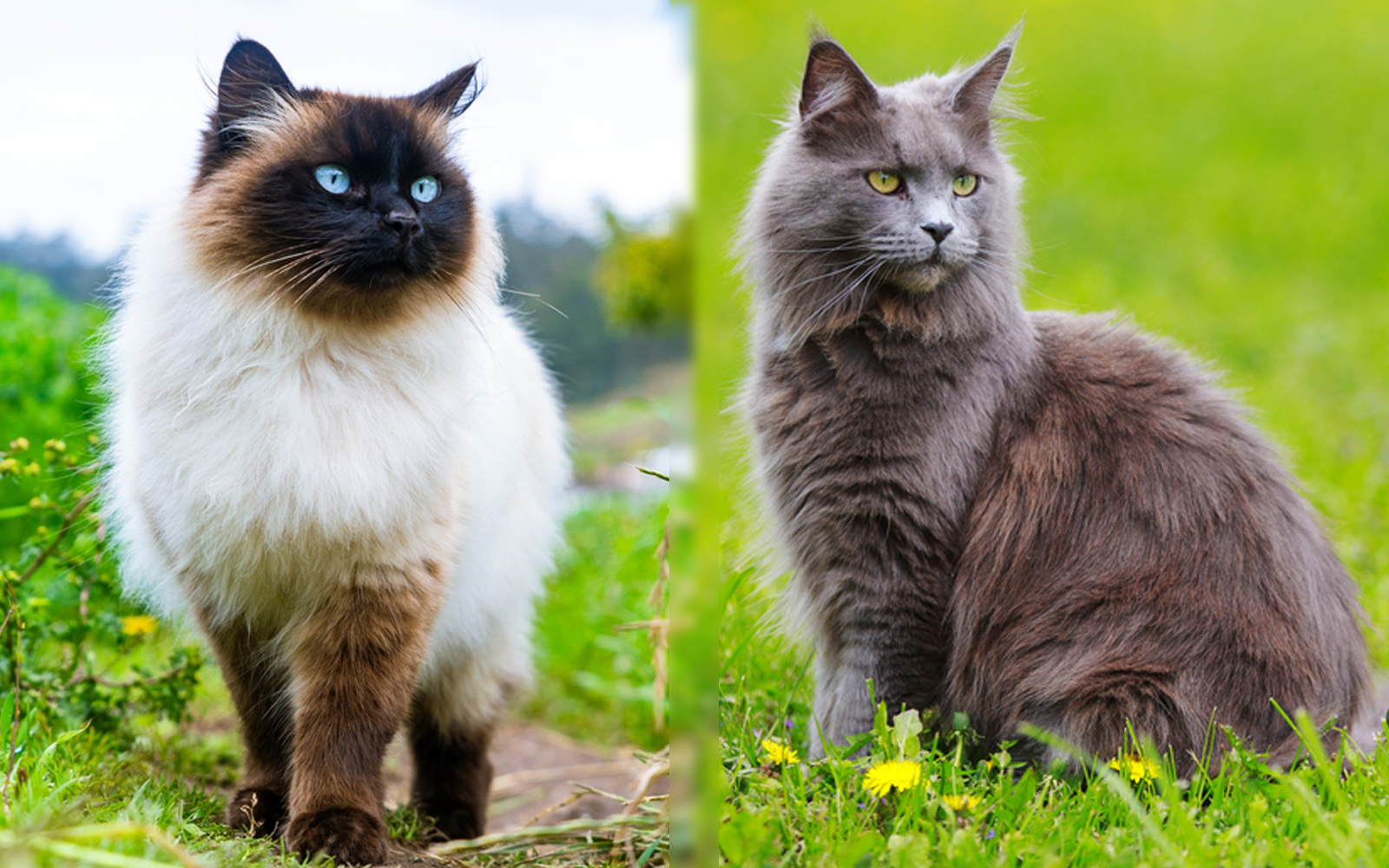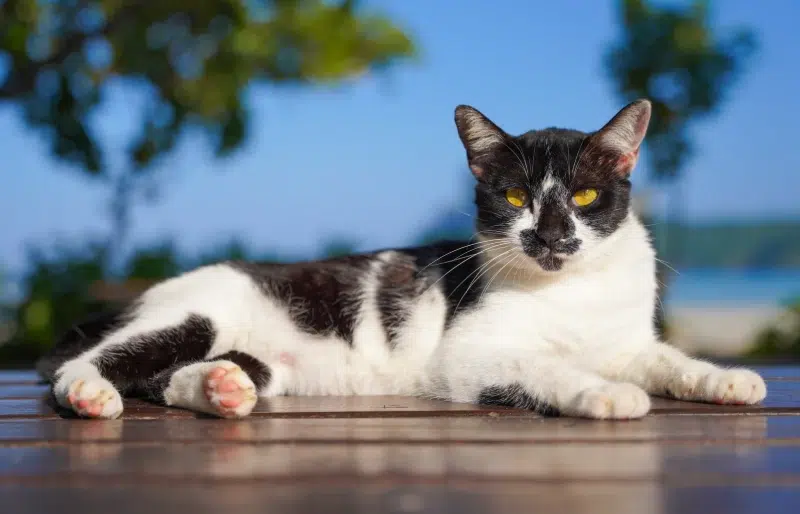Click to Skip Ahead
The Serengeti Cat is a newer breed created in 1994 by Karen Sausman of California, who mixed the Oriental Shorthair with the Bengal breed and gave us the Serengeti. Karen is a conservation biologist who was interested in creating a domestic cat that would look similar to a wild cat, specifically the African Serval, but was 100% domestic as a way of giving the cat owner a substitution to owning an actual wild cat.
Breed Overview
Height:
Medium
Weight:
8–15 pounds
Lifespan:
9–15 years
Colors:
Golden, gray, black, brown, usually spotted
Suitable for:
Energetic families, with or without other pets
Temperament:
Friendly, active, agile, chatty, outgoing, confident, gentle
The Serengeti is recognized by The International Cat Association (TICA). They are medium-sized cats with long legs and large ears that are slightly rounded at the tip and round eyes that are usually gold to amber in color.
They have short, smooth, and soft coats that come in a golden to yellowish color with distinct black spots, or they can be a cool grey or silver with black spots or solid black. The spots appear similar to leopard spots, which is what gives them the wild cat look.
Serengeti Characteristics
 Serengeti Kittens
Serengeti Kittens
The Serengeti is a highly energetic and active cat with an average lifespan (9–15 years). They are trainable with consistency and patience and have no known health issues associated with the breed. The Serengeti tends to form a strong bond with her family and is generally outgoing and social.
3 Little-Known Facts About the Serengeti
1. The Serengeti Is Nicknamed the “Velcro Cat.”
Serengetis stick to their favorite humans, like Velcro! The Serengeti forms a strong bond with their family and will follow you around and stick to you like glue.
2. The Serengeti Is Known to Be chatty.
Because the Serengeti has the Bengal and Oriental Shorthair breeds as part of their breeding background and are known for being extra talkative, the Serengeti is also known to vocalize excessively.
3. The Black Serengeti Can Still Have Black Spots.
The black Serengeti is also known as Melanistic and has ghost spots like a black panther. While the black spots are hard to see on a solid black coat, they are still there and are more apparent in bright sunlight.
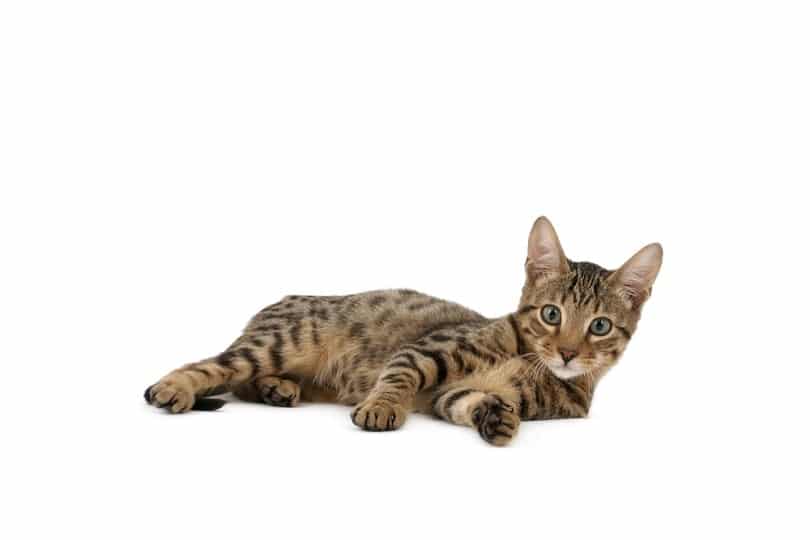
Temperament & Intelligence of the Serengeti
The Serengeti is a devoted and loving cat that will follow you and take as many opportunities as possible to cuddle with you on your lap. While they are incredibly energetic and playful, they are also gentle and affectionate and are pretty confident and outgoing cats.
The Serengeti is a smart cat that can be a little shy when first introduced to a new place or situation but will very quickly adjust and show off their friendly and easygoing nature in due time. They might also be a little wary of strangers initially but will warm up quickly when they become familiar with the new person.
Are These Cats Good for Families? 👪
Absolutely! The Serengeti gets along with children of all ages and will be a fun playmate thanks to their energetic and playful natures. However, like with any animal, they should be supervised when interacting with younger children. Children should always be taught how to be gentle with animals. Pulling their tail or constantly carrying the cat around should be avoided.
Does This Breed Get Along with Other Pets?
If the Serengeti is given time to adjust to any new pets introduced into the household or is raised alongside other animals, they will get along very well with them. Always have an escape route, such as shelves or a cat tree, provided for your cat in case they become overwhelmed or scared.
Things to Know When Owning a Serengeti:
Food & Diet Requirements 🐡
Find a high-quality dry cat food and follow the instructions on the back of the bag so you can figure out how much you should feed your Serengeti every day. Keep an eye on the amount of food and treats they eat since you don’t want an overweight cat, but you can talk to your vet if you’re ever concerned about their weight or health. They can also tell you how much food is appropriate for your pet.
You should also consider purchasing a cat fountain for your Serengeti to help increase their water intake. Many cats do not get enough water, and they could end up with kidney problems as they get older. A fountain can help prevent this from happening.
Exercise 🐈
The Serengeti is a very active cat that will spend a lot of time running and playing independently, and most of their exercise will be taken care of naturally. You can also provide cat puzzles when you’re not around as an additional way to ensure they’re entertained and not bored.
You should consider keeping the Serengeti indoors since their exotic looks might tempt someone to steal them. As mentioned, the Serengeti loves jumping and lounging around in high places, so be sure to provide cat shelves or a cat tree to keep them entertained and happy.
Training 🧶
The Serengeti is not known to be highly trainable for tricks, but they’ll respond to obedience training with positive reinforcement. For example, providing treats when they scratch the scratching post instead of the couch can teach them which behaviors are acceptable.
Grooming ✂️
The Serengeti has a short, sleek coat that will not require frequent brushing, and they’ll take care of it with frequent grooming. However, it is a good idea to get them accustomed to brushing while young since it can be a bonding experience, and they will need more help grooming as they age. Brushing the Serengeti at least once a week is sufficient, but it won’t hurt to do it more often, especially if your cat enjoys it.
When they’re young, it’s also a good idea to get them used to nail trimming, and a cat scratcher will help to save your furniture. Providing your cat with dental treats can keep their teeth clean, and you can get them used to a toothbrush while they’re still a kitten.
Health and Conditions 🏥
The Serengeti is a healthy cat that is also a rare and relatively new breed, and they have no known problematic health conditions, particularly compared to other purebred cats. Since they were bred from the Bengal and Oriental Shorthair, it is helpful to be familiar with the health problems associated with the breeds.
Your vet will check your cat’s hips and knees and run heart and blood tests to check for common health problems. Your vet will check your cat’s eyes in addition to the standard testing during an annual physical exam. If you bought a kitten from a breeder, they should have been screened for all of these conditions before going home with you. Any problems with the kitten should be disclosed to you by a good breeder.
 Male vs. Female
Male vs. Female
The female Serengeti is usually slightly smaller than the male, which typically weighs 10 to 15 pounds, and the female weighs around 8 and 12 pounds. Spaying the female will be a little more expensive but will stop her from going into heat and, of course, prevent pregnancy. Neutering is a quicker and cheaper operation and will prevent your male from spraying and wandering off.
There is also the belief that, in general, female cats are a little less affectionate than males and tend to be more cautious. But the true determinate of most cat’s personalities comes from the time they spend with their mothers and littermates and how they are treated by people throughout their lives.
 Final Thoughts
Final Thoughts
Finding a Serengeti will be challenging since there are very few breeders of this exotic looking cat in North America. You can contact cat clubs and any breeders you find to help steer you in the direction of a good breeder with available kittens. You can also post your interest in the Serengeti on social media. You can use adoption agencies, which may take more time and patience, but the Serengeti is worth it!
If you are looking for a miniature wild cat in appearance with a decidedly domestic cat personality, the Serengeti is a perfect mix of sweet and fun and might be the ideal fit for your family.
Featured Image Credit: LTim, Shutterstock

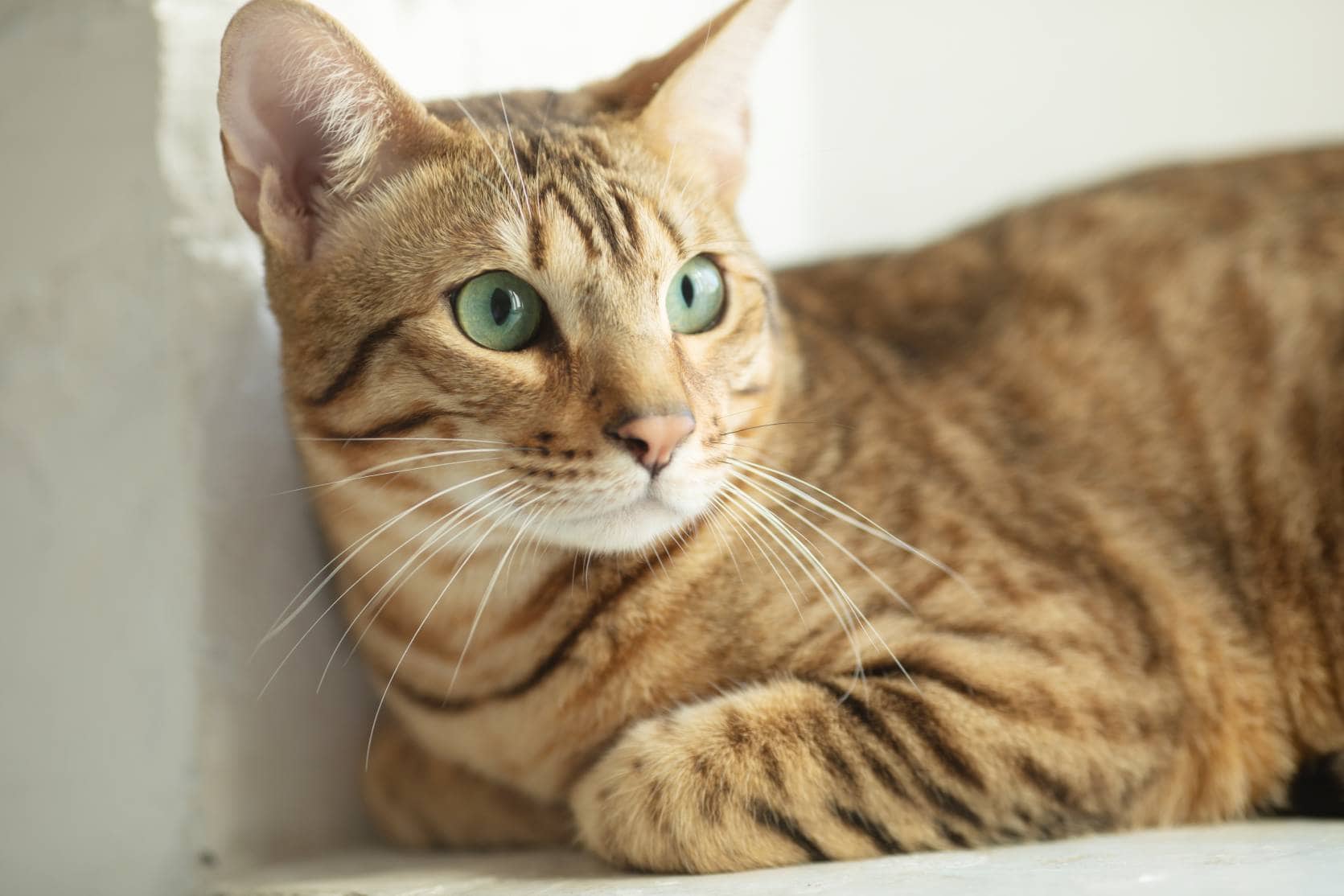
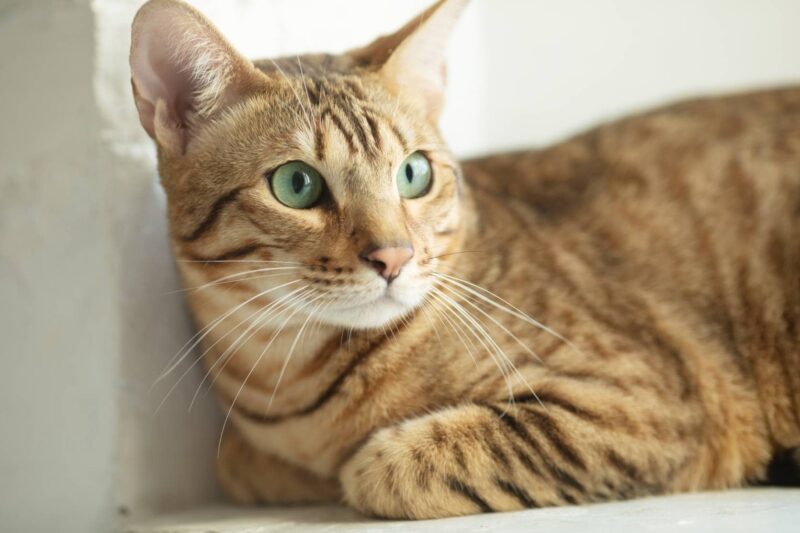
 Serengeti Kittens
Serengeti Kittens


 Male vs. Female
Male vs. Female